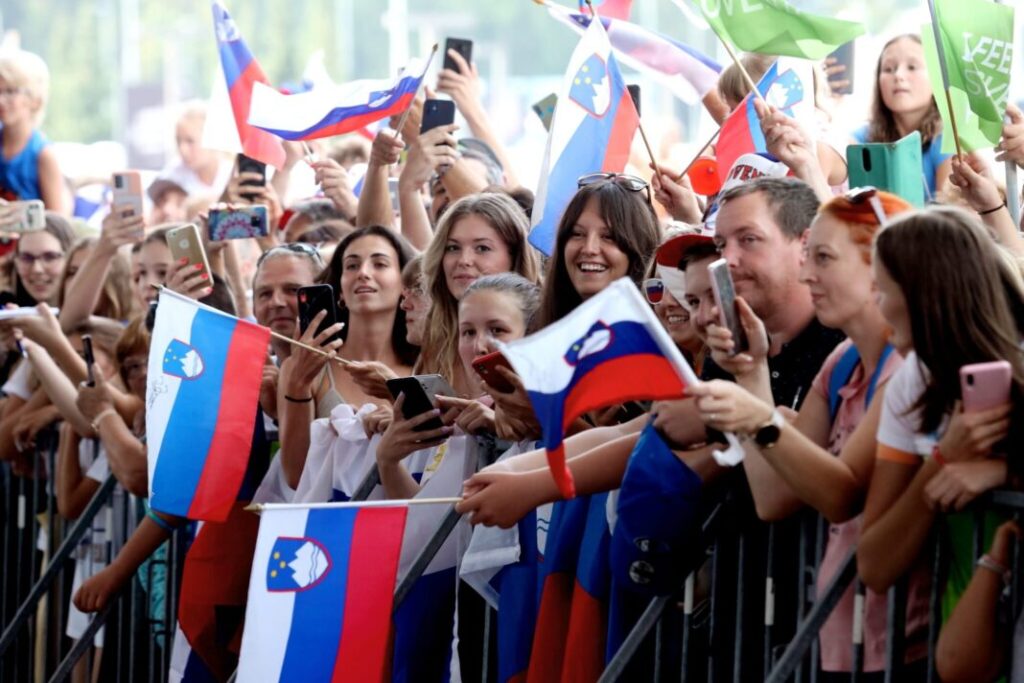By: Matej Avbelj, Peter Jambrek, Ernest Petrič, Janez Podobnik, Dimitrij Rupel, Ivan Štuhec, Žiga Turk, Marko Voljč in Tomaž Zalaznik
The signatories of the initiative are from the wider circles of the Cathedral of Freedom, the Assembly for the Republic and ActTank, which bring together people from the world of culture, science, and entrepreneurship. Interlocutors from the ranks of political parties positioned between the two profiled Slovene political parties were invited to discuss the Slovene political centre, taking into account the following ideas:
- The current political culture in Slovenia is not good. Communications between political representatives, between them and the media, between governmental and non-governmental institutions are too one-sided and biased, so that they are already turning into a comprehensive cultural struggle that hinders the normal functioning of the state.
- There are frequent allegations that Slovenes are fatally at odds with each other, hostile to each other, and divided.
- Slovenia is at a turning point, when we all hope that the transition is coming to an end, and that Slovenia is becoming a normal European society and country after many decades. The situation is particularly difficult due to the long-term health crisis. Otherwise, the usual protest associations change in many places from well-meaning peaceful rallies to intolerant, violent and unproductive street confrontations. Slovenia must not get stuck in hostile disputes and power struggles.
- This is especially true during the political competitions ahead of us in the super election year 2022. The upcoming parliamentary, municipal and presidential elections will be a challenging challenge facing Slovenian democratic culture. In this condensed political time, artificial divisions would hinder the functioning of the state’s institutions and make life difficult for its people.
- Conflicts between political poles are normal. However, in the last year, the polarisation of the Slovenian political space has been excessive, unproductive and harmful. Increasingly impatient disputes are dragging the whole society into a vortex that is difficult to control, and the entire Slovenian society is becoming its hostage. That being said, it also prevents an effective fight against the epidemic and makes normal political life impossible. This is one of the reasons why we reject the idea that Slovenia should choose between only two options. Slovenian voters deserve more.
- The current exclusion walls need to be torn down. Let us remember how we succeeded in this at the time of independence and the establishment of an independent Slovenian state. We know that it is possible to relax political moods – as has already happened at the initiative of Slovene intellectuals in the condensed historical time of the Slovene spring.
- Democratic countries are characterised by political competition, which is also necessary in Slovenia. Therefore, we are committed to relaxation, cooperation and integration in the political environment and we are looking for ways to revive Slovenian modern political culture, which is otherwise characteristic of Western civilisation. Slovenia needs a central, calm, but clear and unifying political language, which should be the basis for new forms of cooperation in the Slovenian political space.
- It is a political centre that spreads on both sides of the centre line. Only a comprehensive centre can be genuinely popular, free-thinking, respectful of the traditions of previous generations, as well as open to the ever-modern values of the welfare state in urban and rural environments. Thus, the core of the Slovene political centre extends from the centre to all Slovene lands, while addressing our towns and villages with equal respect.
- The current initiative is inclusive. It builds on networking and collaboration. It presupposes breadth, a political culture of civility, tolerance and personal honesty. It encourages all kinds of creativity, entrepreneurial initiatives, respect between the young and older generations, as well as a positive attitude towards Slovenia and the institutions of the Slovenian state. Therefore, the centre is a space of civil society and cultural and academic design.
- The alliance for the political centre must not hinder or even limit the identity and autonomy of existing, now functioning, even newly established political parties and movements. On the contrary, from the very beginning, the central alliance must publicly create and ensure a common third path that will be the basis for a tolerant and respectful policy. It is also about enforcing genuine European values, i.e. strengthening European Sloveneness.
- It would be good for the central parties, governmental and opposition, parliamentary and non-parliamentary, to form an alliance that should bring a third option to the Slovene political space, one that will be closest to the value centre of today’s Slovene democratic state. And which will advance along the path of a modern state based on respect for human dignity, the creativity of free people and the democracy of the rule of law and the welfare state.
- The path to such an understood, normally functioning state leads through dialogue and cooperation between different ideas and interests. The key to success lies in the hands and minds of people who believe in dialogue and cooperation and who oppose exclusion.
- In particular, the parties located between the two currently profiled fields of Slovenian democracy are invited to join efforts. However, the constructive conversation to which we invite does not contradict, but connects in the search for answers to the question of what kind of Slovenia we want.
Signatories of the initiative (in alphabetical order): Matej Avbelj, Peter Jambrek, Ernest Petrič, Janez Podobnik, Dimitrij Rupel, Ivan Štuhec, Žiga Turk, Marko Voljč and Tomaž Zalaznik.


